Employment Law Case Study: Race Discrimination and Title VII
VerifiedAdded on 2020/05/16
|5
|741
|80
Case Study
AI Summary
This case study analyzes a scenario of potential race discrimination in an employment setting. The case involves an employee, Franklin, who was dismissed from China Lights restaurant for tardiness, while other employees of Chinese ancestry were not. The analysis focuses on Title VII of the Civil Rights Act of 1964, which prohibits racial discrimination in employment. The document examines relevant court cases such as Price Waterhouse v. Hopkins, Lau v. Nichols, and McClain v. Lufkin Industries, Inc., to support the argument that the employer may be liable for race discrimination. It highlights the importance of fair treatment and equal opportunity in the workplace, with managerial tips emphasizing the need for unbiased implementation of employment terms. The conclusion states that the employer is likely liable for race discrimination against Franklin, and he has the right to seek enforcement of his civil rights through the U.S. Equal Employment Opportunity Commission.
1 out of 5
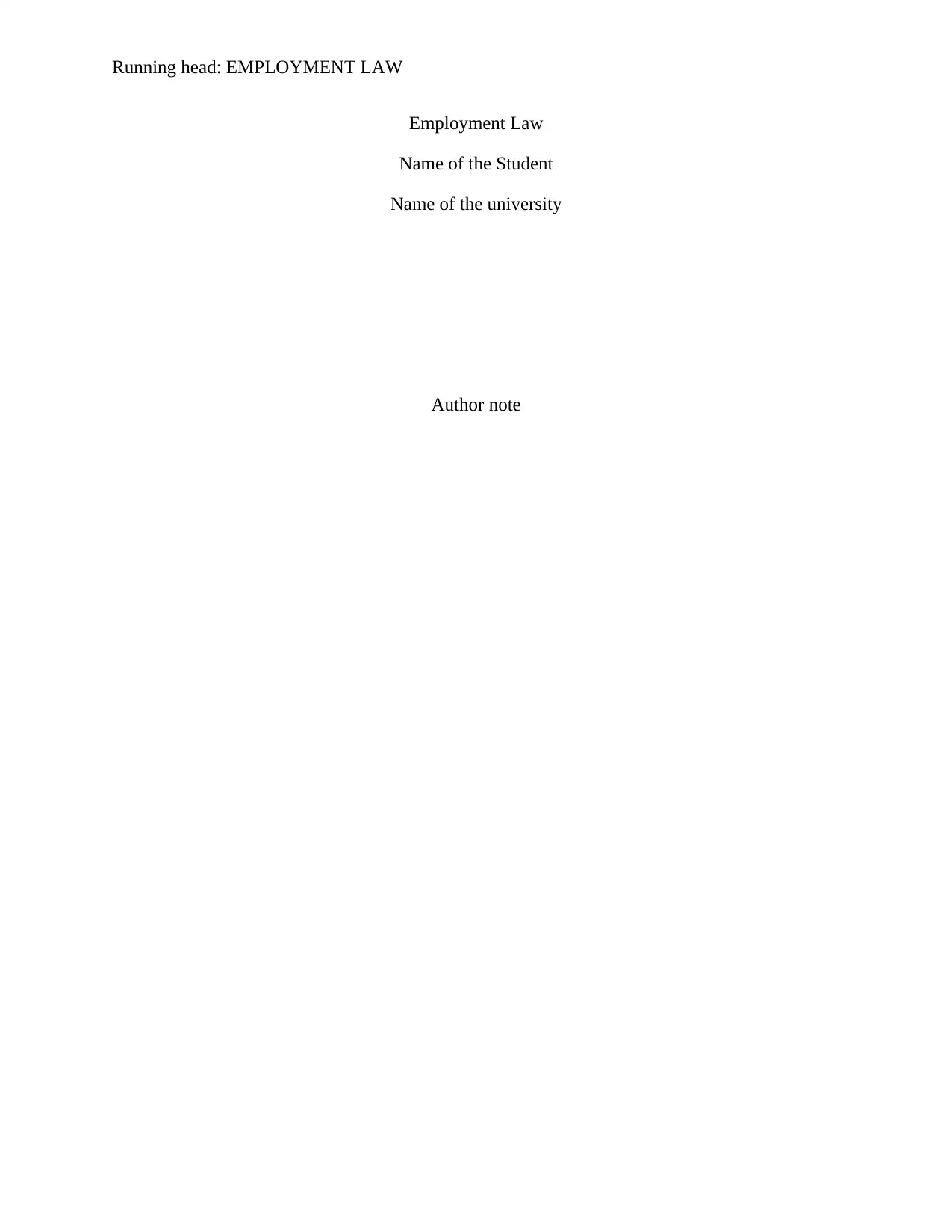
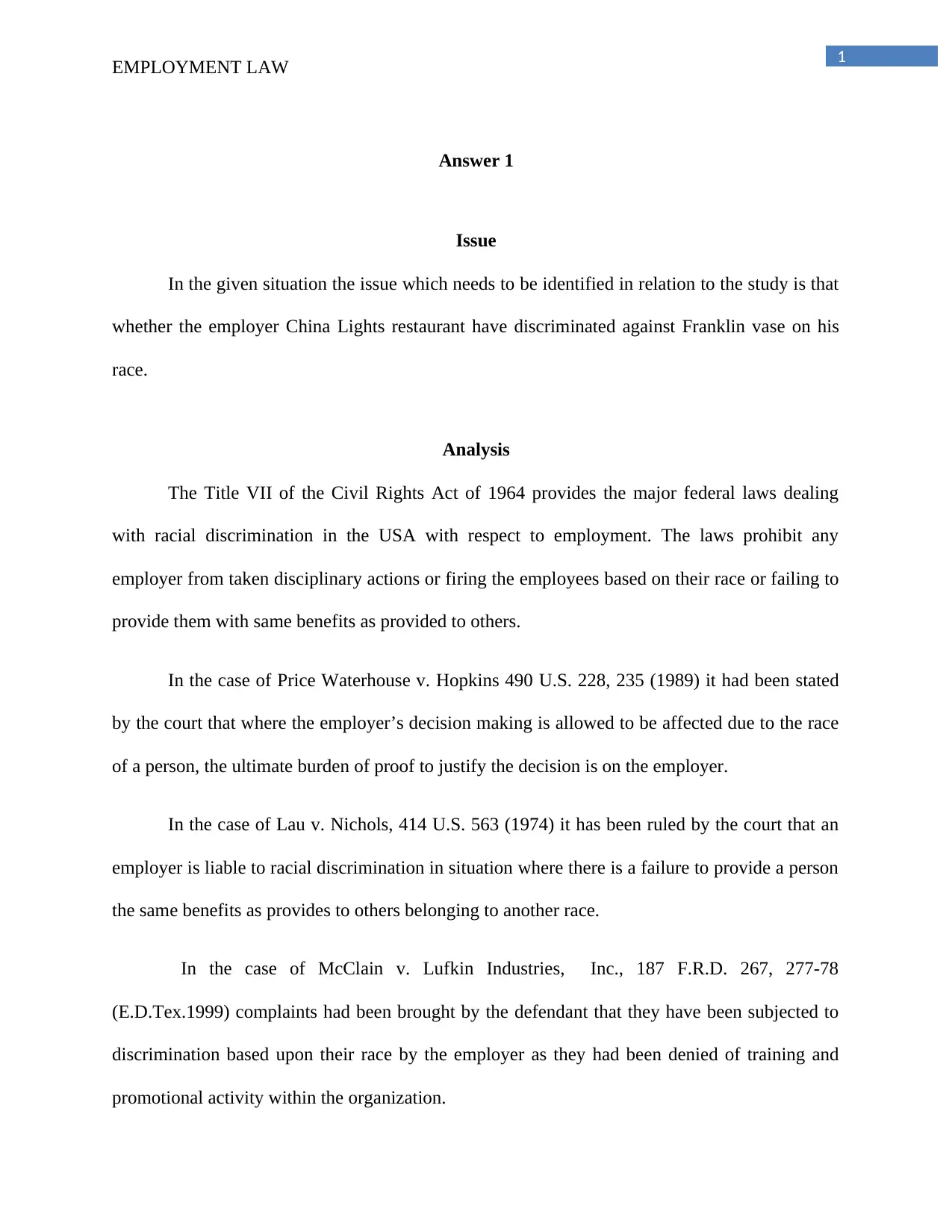
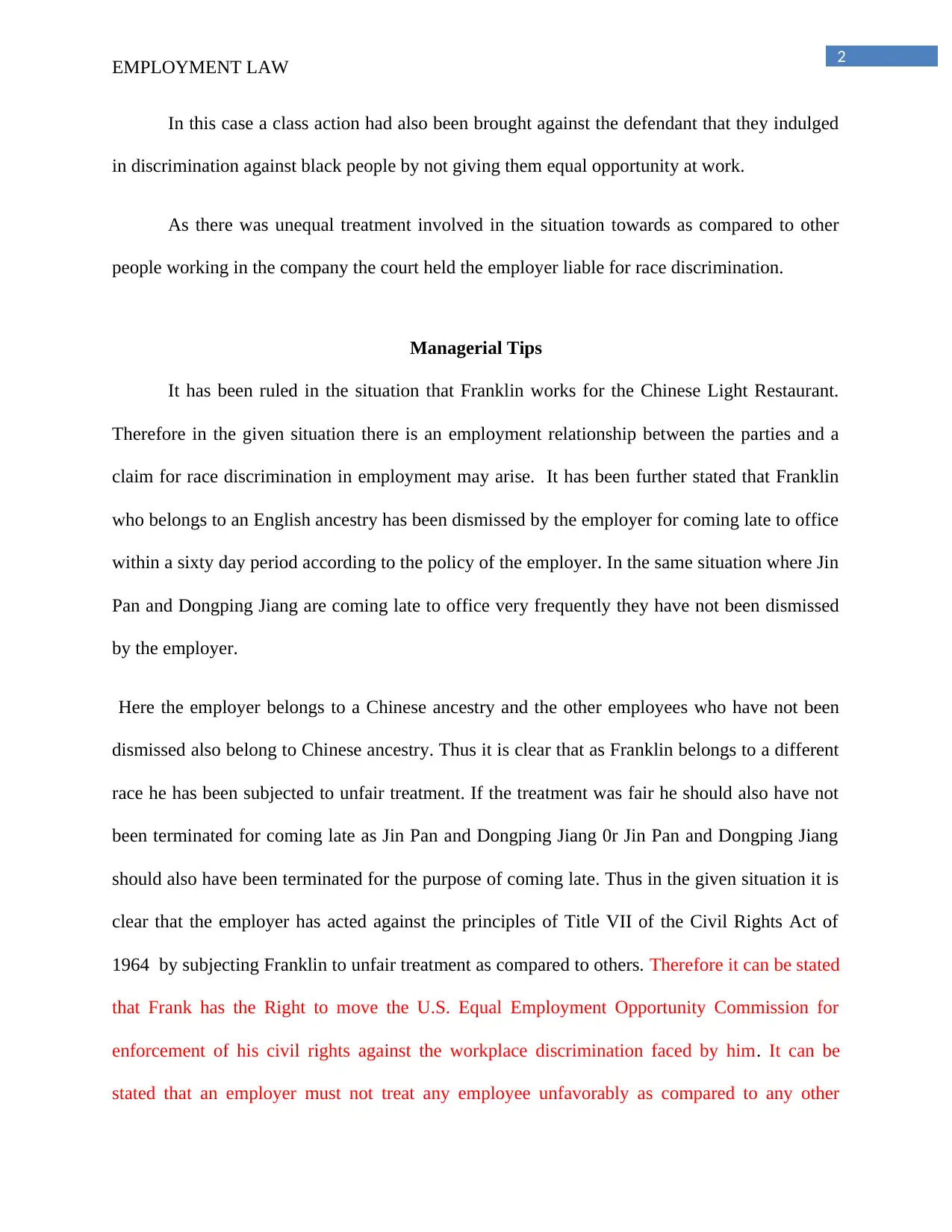

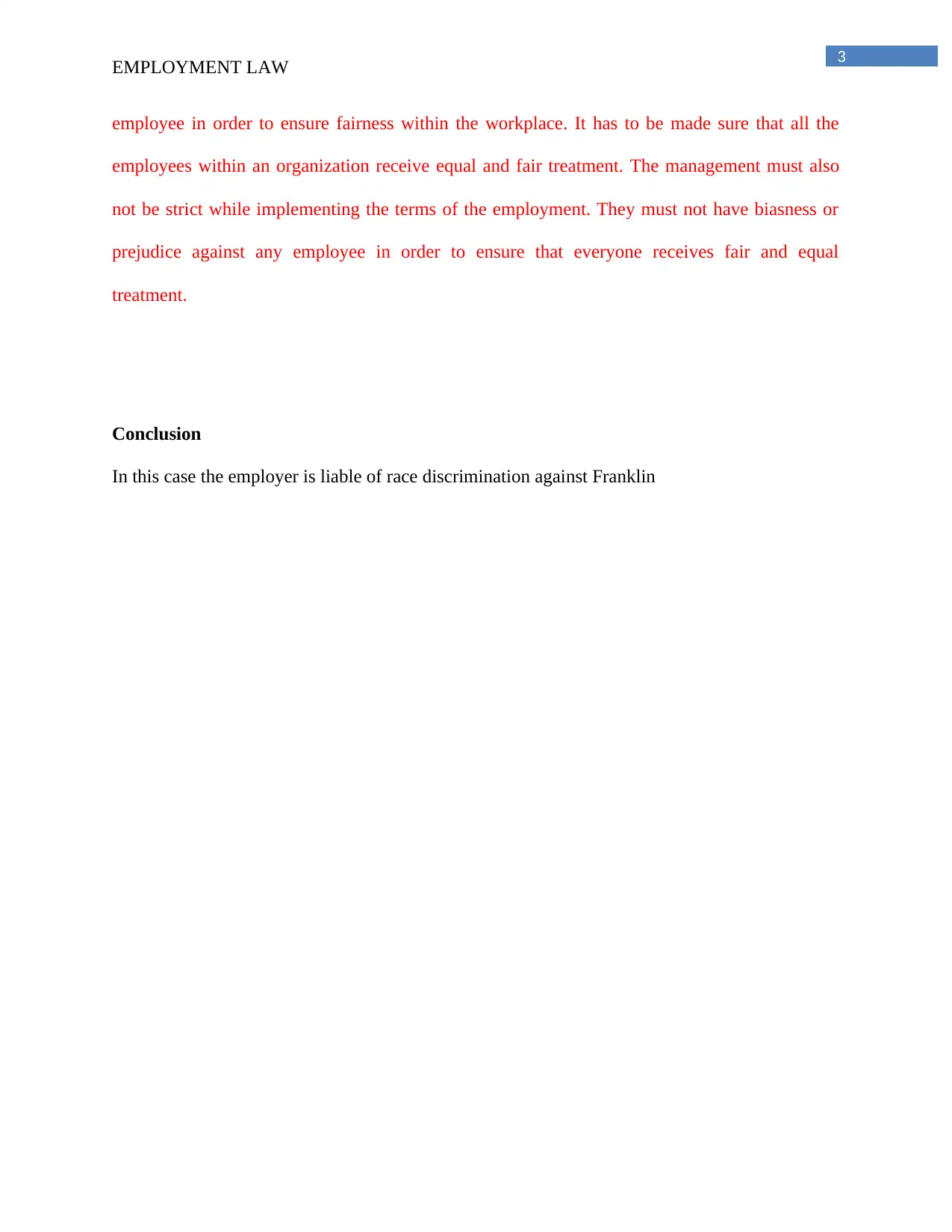
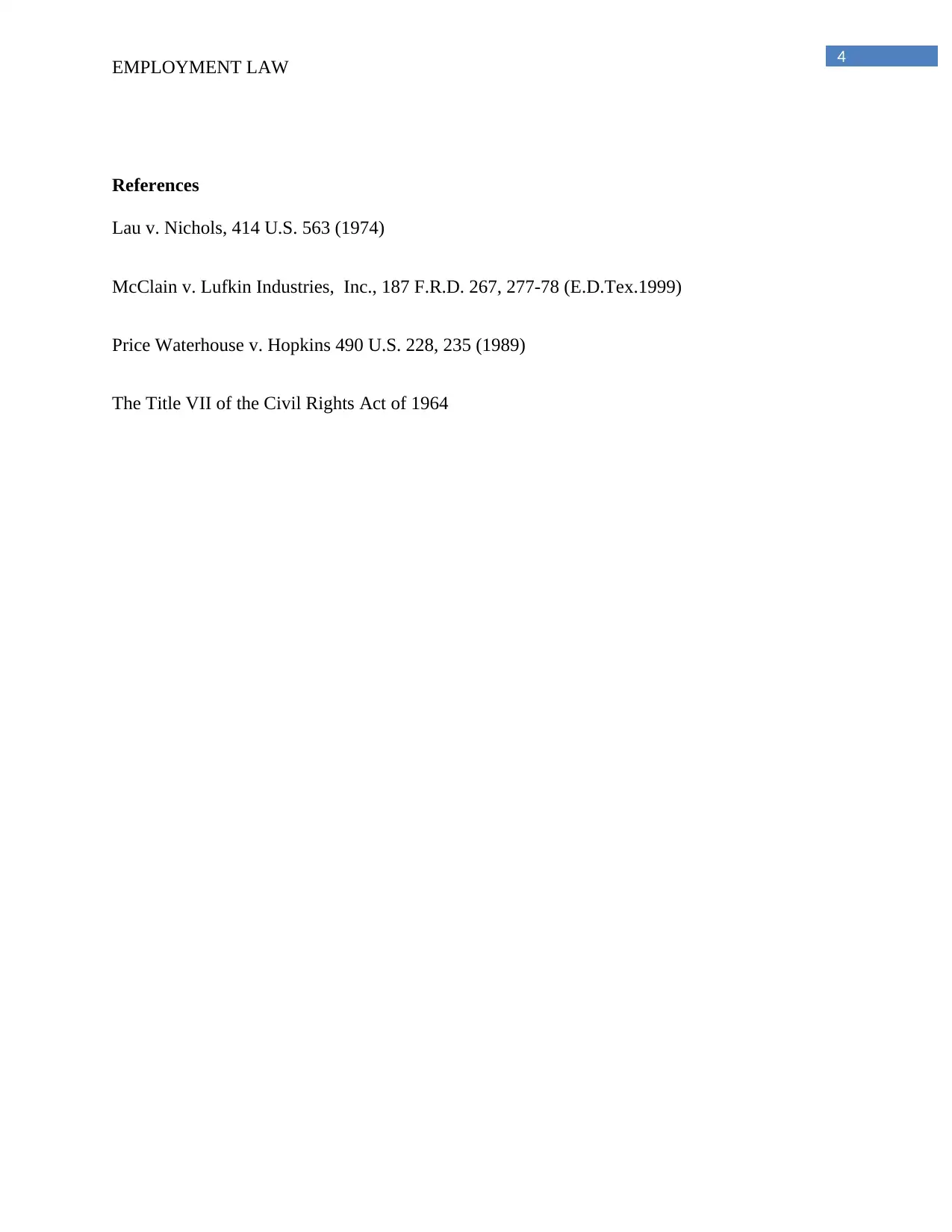





![[object Object]](/_next/static/media/star-bottom.7253800d.svg)